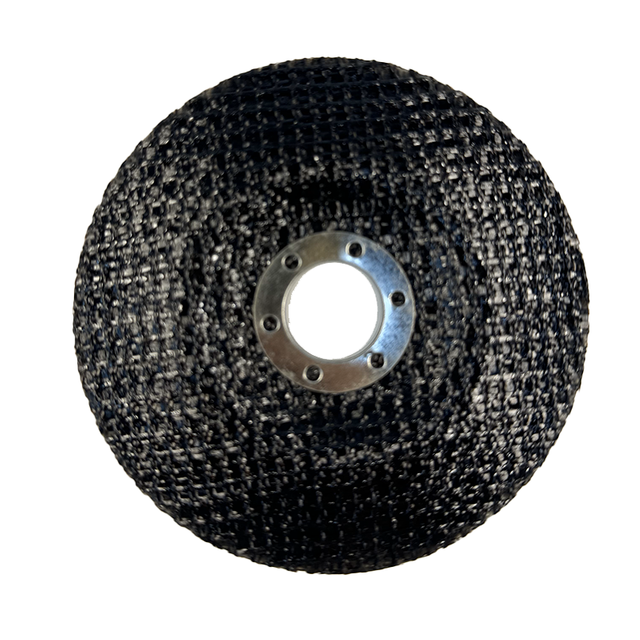
What is Fiberglass Backing?
Fiberglass backing is made from fine fibers of glass woven into a strong, flexible fabric. This fabric serves as the foundation upon which abrasive grains are bonded. The unique properties of fiberglass provide excellent dimensional stability, high tensile strength, and resistance to moisture, heat, and chemicals, making it ideal for harsh working environments.
Unlike paper or cloth backings, fiberglass backing does not stretch or tear easily during use. This ensures that abrasive products maintain their shape and cutting efficiency throughout their lifespan.
Advantages of Fiberglass Backing
1. High Tensile Strength
Fiberglass backing offers superior strength compared to other backing materials. This reduces the risk of tearing or breaking under high pressure or heavy loads.
2. Heat Resistance
The glass fibers can withstand elevated temperatures generated during high-speed sanding or grinding without degrading or losing structural integrity.
3. Moisture and Chemical Resistance
Unlike paper backings that can absorb moisture and weaken, fiberglass backing remains stable even in damp or chemically aggressive environments.
4. Dimensional Stability
Fiberglass does not stretch or shrink, providing consistent contact with the workpiece and uniform abrasive action.
5. Longer Product Life
Abrasive belts and discs with fiberglass backing tend to last longer due to the backing’s resilience, resulting in cost savings and less downtime.
Applications of Fiberglass Backing
Fiberglass backing is commonly used in various abrasive products across many industries:
• Sanding Belts and Sheets: For heavy-duty metalworking, woodworking, and automotive finishing.
• Grinding Wheels and Discs: Providing a sturdy base for abrasive grains in grinding and cutting operations.
• Polishing and Finishing Products: Ensuring even pressure distribution and durability during polishing tasks.
• Industrial Coatings: Used as a reinforcement layer in specialty coated abrasive products.
Comparison with Other Backing Materials
• Paper Backing: While economical, paper is prone to tearing and moisture damage, limiting its use in heavy-duty or wet sanding applications.
• Cloth Backing: More flexible than paper, but generally less heat-resistant and less stable than fiberglass.
• Fiberglass Backing: Combines strength, heat resistance, and durability, making it suitable for the most demanding industrial environments.
Selecting Fiberglass Backing for Your Needs
When choosing abrasive products with fiberglass backing, consider:
• Abrasive Type and Grit Size: Ensure compatibility with the intended application, whether coarse grinding or fine finishing.
• Operating Conditions: High-speed or high-pressure applications benefit most from fiberglass backing’s resilience.
• Machine Compatibility: Confirm that the abrasive product matches the specifications of your sanding or grinding equipment.
Maintenance and Safety Tips
• Inspect for Wear: Regularly check fiberglass-backed abrasives for signs of damage or delamination.
• Proper Storage: Store abrasives in a dry, cool environment to preserve backing integrity.
• Use Appropriate PPE: Fiberglass dust can be irritating; always wear suitable respiratory protection and eye protection during use. Visit our website https://www.master-abrasive.com/ for more details.
Conclusion
Fiberglass backing significantly enhances the performance and durability of abrasive products, especially in industrial settings where toughness and reliability are essential. Its combination of strength, heat resistance, and dimensional stability allows abrasives to perform consistently under challenging conditions, improving productivity and reducing operational costs.
For industries that demand the best in abrasive technology, choosing products with fiberglass backing is a smart investment in quality and longevity.